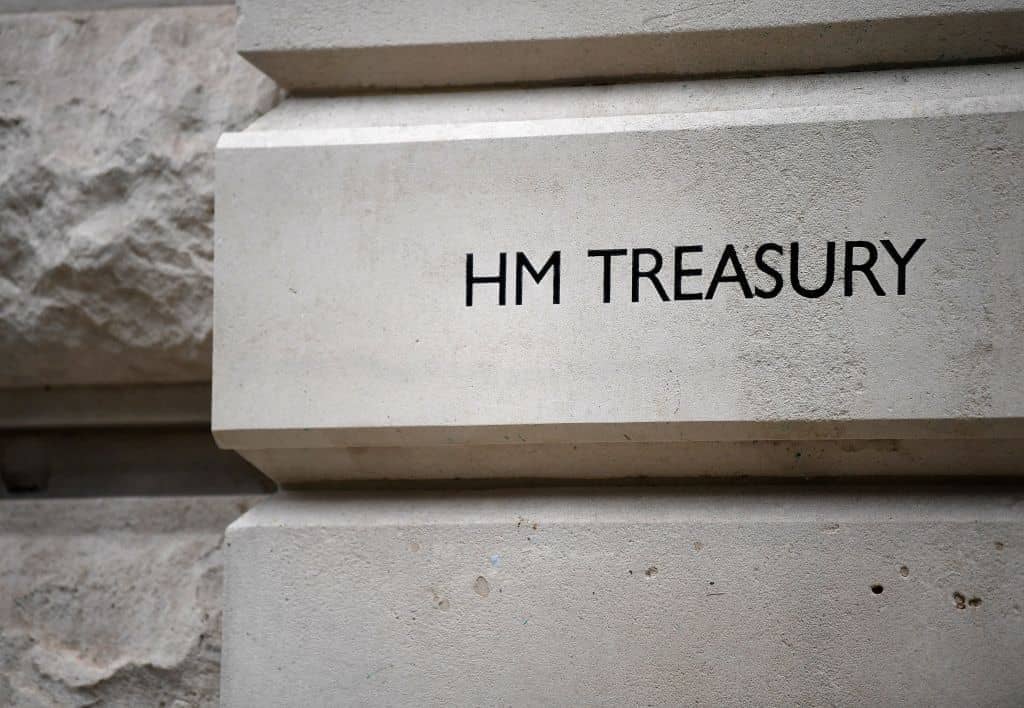Conservative leadership elections aren’t usually associated with big policy ideas. But last week Kemi Badenoch put forward a proposal that could revolutionise the way the British state works. She suggested we should break up the most powerful government department, the Treasury. Others also think there’s a problem; Penny Mordaunt’s book Greater: Britain After The Storm suggests ‘decentralising’ and ‘localising’ Britain’s finance ministry. What’s behind the sudden interest in the fate of the goings-on in one building in Whitehall?
At the heart of the issue is the fact that Her Majesty’s Treasury is rather unusual, and very powerful. The Treasury is unusual because it combines three government functions that in many other countries – Australia, the United States, Germany, Japan – are separated out. It is at once a budgetary ministry, a finance ministry and an economic ministry. In business terms, it is as if a company combined the roles of its finance director, its banker, and its business development director into one mega-job.
This makes the Treasury a powerful place. The Chancellor is without question the second-most powerful figure in any government, and the department has its pick of the smartest recruits, who typically go on to run other departments. It also creates a certain mindset. The Treasury’s responsibility for the state’s purse-strings and the public credit dominates its view of the world. Some aspects of this worldview are good: a respect for economics and financial discipline and a scepticism of grands projets, boondoggles and promises of sunlit uplands.
The Treasury’s responsibility for the state’s purse-strings dominates its view of the world
Other aspects are more harmful. To the weary eye of a Treasury veteran, metro mayors, local councillors and what are disparagingly referred to as OGDs (‘other government departments’) are mostly untrustworthy wastrels. This desire for control is the enemy of devolution and responsible local government, and it creates a sort of learned helplessness in the rest of Whitehall that ends up costing the taxpayer more. A good example of this Procrustean logic is defence procurement, which by its nature requires occasional, large expenditures, but is often inefficiently dragged out over years to create the smooth expenditure profiles the Treasury likes to see.
The accountant mindset goes hand-in-hand with a historic pessimism about the government’s ability to improve the UK’s economic growth. The Treasury’s prior is that tax cuts, deregulation, public investment and other policy changes can do little to increase the UK’s rate of economic growth. Better the bird-in-the-hand of the tax increase or the spending cut today than the two-in-the-bush of higher national income. Would-be tax-cutters have often been thwarted by the Treasury’s unwillingness to make dynamic forecasts of the benefits of tax cuts, as Sam Dumitriu of The Entrepreneurs’ Network has pointed out. Equally, economists Diane Coyle and Marianne Sensier have argued the Treasury’s evaluation tools are biased against investments in ‘levelling up’.
None of these problems will come as a surprise to long-time observers of the UK’s great businesses. The decline of companies like Imperial Chemical Industries and the General Electric Company shows all too well what happens when bean-counters get too much power. As Elon Musk put it, ‘the moment the CFO becomes CEO, the company’s done’. Kemi Badenoch seems to have reached the same conclusion about Westminster.
Her proposed alternative is to break the Treasury up. There are a number of ways to do this, but they all involve separating its budgetary responsibility and its economic role. A smaller budgetary ministry might look like Australia’s Department of Finance or America’s Office of Management and Budget, which manage public expenditure and departmental performance. This could sit within a reformed Cabinet Office, giving a new Prime Minister stronger oversight over what departments do – and more accountability for the promises he or she makes.
A separate economics ministry would be charged with doing everything it could to increase the UK’s sluggish rate of economic growth. In Badenoch’s proposal, this would be directly accountable to the Prime Minister. It could equally take over most of the functions of the business department, from deregulation to the funding of scientific research, as has been proposed by George Freeman, the former science minister.
The closest anyone has come to making this work in the UK was Harold Wilson, who carved an economics ministry out of the Treasury in the 1960s. It lasted only five years: Wilson’s dirigiste vision of a national plan for the economy did not work, and the department foundered on the rocks of the currency crisis of 1967 and George Brown’s drink problem. A better example is Australia, where Liberal prime minister Malcolm Fraser responded to the Australian Treasury’s pessimistic obstructionism by appointing his own economic advisers and breaking the department in two. Australia is in its 31st year without a recession, and has not seen any reason to reverse the change.
Breaking up the Treasury is an idea that would have to be executed carefully – maintaining a strict eye for wise public spending in the budgetary ministry, and in the economics ministry an optimistic, deregulatory mindset that respects and harnesses the power of markets. But there is a lot to play for: Britain has seen 15 years of sluggish economic growth, which in turn causes a host of other problems – lower wages, higher taxes and worse public services. If taking a risk in Whitehall can help turn things around, it is worth trying.






Comments